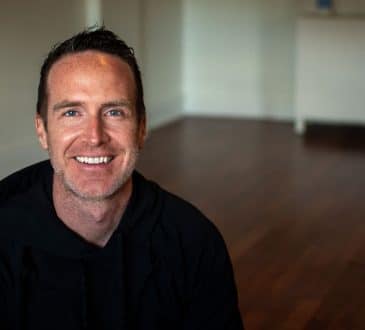Jeff Smith, BlackRock Former HR Executive, Reveals How Psychology Can Shape Leadership Success

The intricate interplay between psychology and success has become a focal point in corporate leadership, particularly within human resources. As businesses navigate the challenges of a rapidly evolving global market, the ability of leaders to understand and leverage psychological principles has emerged as a crucial factor in achieving sustainable success.
Jeff Smith’s foray into HR is marked by his academic expertise in psychology — specifically a Ph.D. in industrial-organizational psychology from Virginia Tech — which focuses on scientifically based solutions to human problems in work and other organizational settings. “I think being ‘psychologically minded’ is very helpful in terms of thinking through interpersonal dynamics and not just focusing on the business issue at hand but on the people who are dealing with the issue,” he said. “I always found it most helpful in building strong relationships and also in building teams.”
Smith’s perspective reinforces the notion that understanding individuals is a potent tool for HR executives seeking to foster impactful leadership. After all, leadership, at its core, is a human endeavor, and the dynamics of human interaction heavily influence its outcomes. Psychologists and HR experts are increasingly shedding light on how certain psychological traits and strategies can shape the trajectory of leadership success. Psychology plays a pivotal role in leadership within the context of human resources.
Jeff Smith, BlackRock’s former HR exec, highlights psychology’s intersection with mathematics and statistics, emphasizing their role in conducting research. This analytical dimension aligns with the growing importance of data literacy in the modern business landscape, underscoring the need for HR leaders to leverage quantitative insights in their decision-making processes.
Emotional Intelligence: A Cornerstone of Effective Leadership
Emotional intelligence is the ability to understand and manage one’s feelings and recognize and respond to others’ emotions. It involves being aware of emotions in yourself and those around you.
People with high emotional intelligence tend to navigate social situations effectively, empathize with others, and handle conflicts tactfully. It’s like having an intelligent compass for emotions, helping individuals build positive relationships, make better decisions, and create a harmonious environment.
Emotional intelligence has become a factor in leadership success in HR. The ability to recognize, understand, and manage one’s own emotions and those of others is a skill set that resonates deeply in a people-centric field like human resources.
Studies have shown that leaders with high EI are more adept at navigating complex interpersonal relationships, resolving conflicts, and fostering a positive workplace culture. Approximately 58% of job success is attributed to emotional intelligence, according to TalentSmart.
As organizations increasingly emphasize employee well-being, leaders who can effectively manage their emotions and empathize with their team members are better positioned to create a conducive and collaborative work environment.
Dr. Daniel Goleman, a renowned psychologist and author, asserts that emotional intelligence can account for up to 90% of the difference between average and outstanding leaders. In the HR landscape, where employee engagement and satisfaction are paramount, leaders with high EI are better equipped to make informed decisions that align with the needs and aspirations of their workforce.
Transformational leadership can be a game changer in the realm of HR, where talent development and retention are perennial challenges. Leaders who can articulate a compelling vision for the organization and inspire employees to contribute their best efforts are more likely to retain top talent and nurture a culture of continuous growth and improvement.
Jeff Smith echoed that by explaining one of the best things a company can do to attract top talent is to “create and communicate a meaningful purpose beyond just making money.”
While psychological principles can contribute positively to leadership success, the field has challenges. In HR, decision-making is critical, and leaders must be aware of the cognitive biases that can influence their judgment.
Confirmation bias, for example, can lead HR leaders to favor information that aligns with their preconceived notions, potentially hindering objective decision-making. Similarly, anchoring bias, where leaders rely too heavily on the first piece of information encountered, can lead to suboptimal choices in talent acquisition, performance assessments, and strategic planning.
Addressing these biases requires self-awareness and a commitment to cultivating a culture of openness of thought within HR teams. “Diversity helps foster different and better thinking and innovation,” stated Jeff Smith.
By acknowledging the existence of cognitive biases, leaders can implement processes and checks that mitigate their impact, ensuring more informed and objective decision-making.
Jeff Smith: Navigating the Human Element of HR Leadership
“I prefer to work in and grow companies that actually care about people,” stated Jeff Smith. Leaders must navigate challenges ranging from organizational restructuring to managing workplace conflicts. The ability to bounce back from setbacks and maintain composure in the face of adversity is a hallmark of resilient leadership.
Resilience, a psychological trait, enables human resources leaders to navigate uncertainty and lead their teams through challenging times. By cultivating resilience within themselves and their teams, HR leaders can instill a sense of confidence and stability, incubating an environment where employees feel supported and motivated, even in the face of organizational changes or external pressures.
“I like that it is hard,” Jeff Smith admitted. “I like trying to play the role of helping to bring out the best in others, to bring people together.”
As organizations strive to attract, retain, and develop top talent, HR leaders who grasp the nuances of human psychology are better equipped to create workplaces that thrive. “It is a huge advantage to have the best talent that is motivated and incentivized to make decisions for the company in a way they would about themselves,” stated Smith.
The evolving landscape of HR leadership underscores the importance of continuous learning and adaptation, where integrating psychological insights becomes a strategic imperative for success in the modern business environment. As the nexus between psychology and leadership continues to deepen, HR professionals find themselves at the forefront of shaping workplaces that not only meet the needs of today but also anticipate and embrace the challenges of tomorrow.
Have you read?
World’s Best Countries To Invest In Or Do Business.
World’s Most Startup-Friendly Countries.
World’s Best Countries For Quality of Life.
Largest Economies Europe In 2024.
GDP of the BRICS countries (2000 to 2028).
Bring the best of the CEOWORLD magazine's global journalism to audiences in the United States and around the world. - Add CEOWORLD magazine to your Google News feed.
Follow CEOWORLD magazine headlines on: Google News, LinkedIn, Twitter, and Facebook.
Copyright 2025 The CEOWORLD magazine. All rights reserved. This material (and any extract from it) must not be copied, redistributed or placed on any website, without CEOWORLD magazine' prior written consent. For media queries, please contact: info@ceoworld.biz








